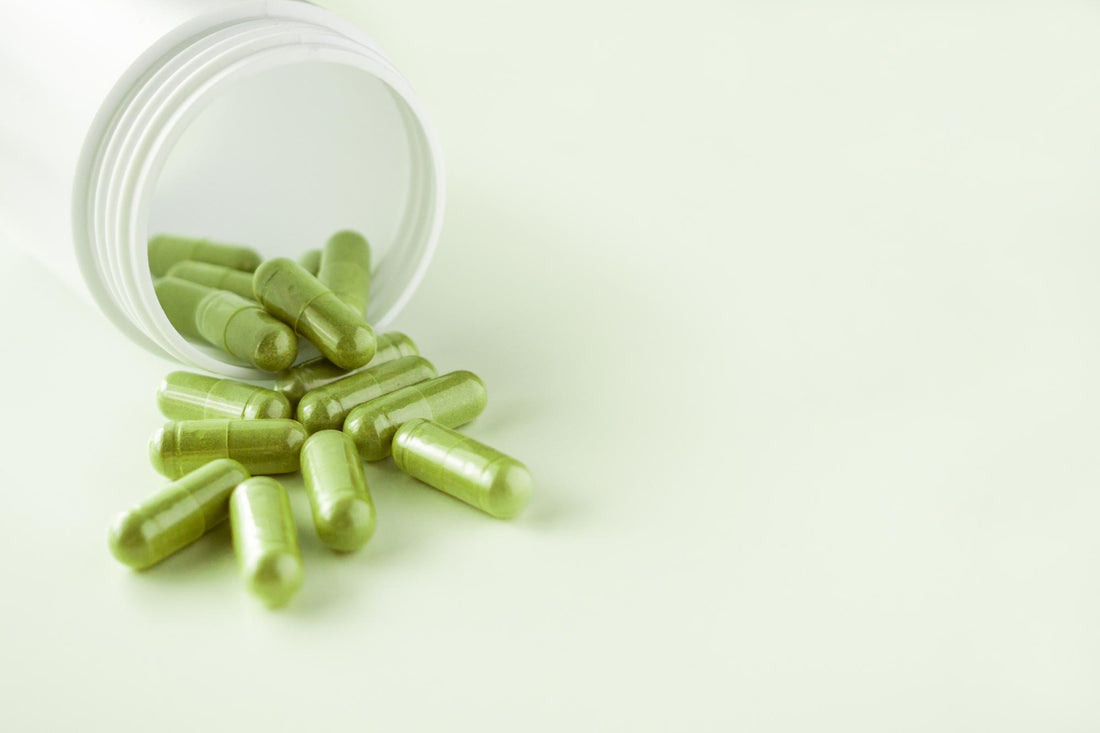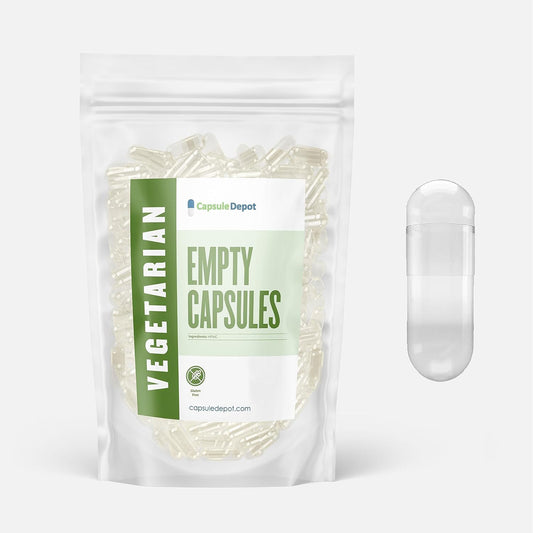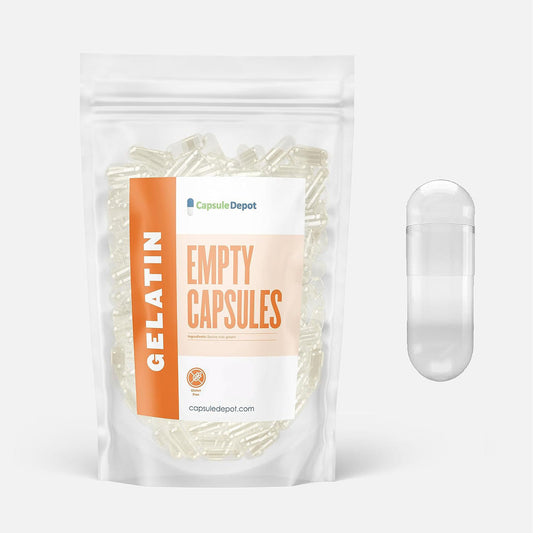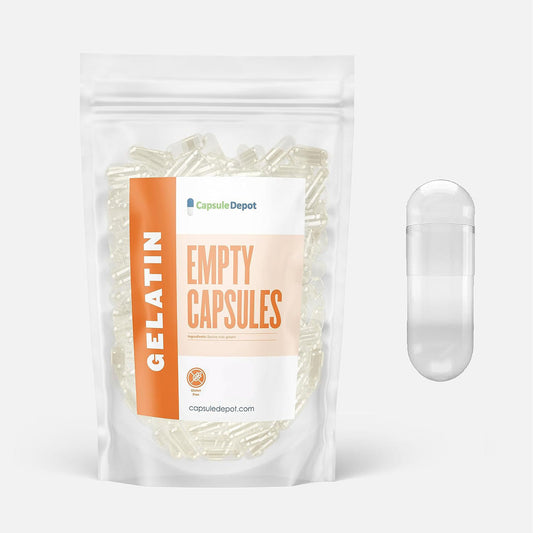Introduction to Capsule Choices: Understanding Veggie and Gelatin Options
Capsules are the favored method for many individuals to administer medications or health supplements. These user-friendly packages offer precise dosing, portability, and high adherence among consumers. Beyond their convenience, capsules boast a neutral or minimal taste, swift dissolution in the intestines, and ease of filling for drug or supplement manufacturers.
For those procuring empty capsules for pharmaceutical or supplement purposes, it becomes crucial to discern the disparities between gelatin and vegetarian capsules. Given that both options are viable, gaining insight into the materials and advantages associated with each type empowers individuals to make informed choices based on their specific requirements. In this article, we delve into the distinctions between gelatin and vegetarian capsules, aiding you in determining the most suitable option for your supplement needs.
The Composition and Origin of Veggie Gelatin Capsules
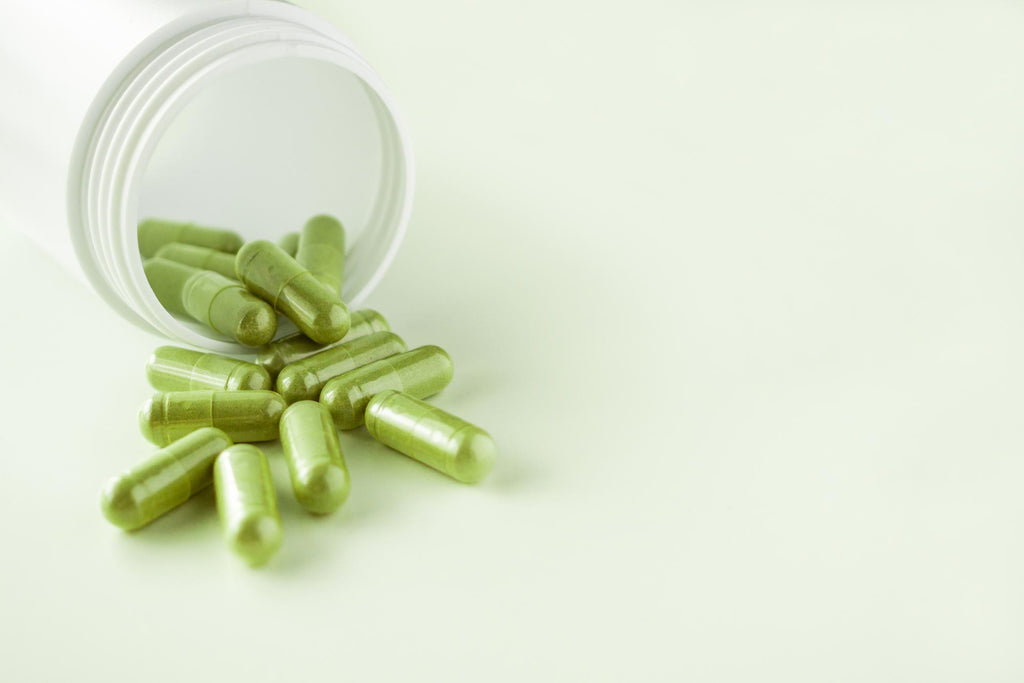
Vegetable capsules are made from either starch, pullulan, or cellulose, a natural plant of origin without known potential health hazards. These cellulose capsule types are suitable for individuals with dietary or religious restrictions that prevent them from consuming products from animal sources. It's important to highlight that hydroxypropyl methylcellulose (HPMC) is the primary component in vegetarian capsules. While they may not be as prevalent as gelatin capsules, vegetarian capsules offer extra advantages.
Conversely, gelatin has been a medicinal remedy for numerous years and is the predominant substance in manufacturing capsules. Whether firm or pliable, these capsules typically derive from collagen sourced from animals such as cows, fish, or pigs. They have been a traditional choice because they are cheaper to produce due to their stability and rapid dissolution. Nonetheless, this challenges individuals adhering to vegetarian or vegan lifestyles or those with particular dietary constraints, including potential religious or cultural considerations. Let's compare the main characteristics of gelatin and vegetarian capsules.
Comparative Analysis: Stability and Solubility
The stability of hydroxypropyl methylcellulose (HPMC) in vegetarian capsules surpasses that of gelatin, maintaining structural integrity through its low moisture content. The plant cellulose polymer exhibits resilience against humidity, with a moisture content ranging from 3% to 7%. Consequently, due to their rigidity, vegetarian capsules are ideal for water-based solutions, moisture-sensitive granules, liquids, gels, oils, and powders. Notably, this plant-derived casing remains stable even in dry conditions.
Conversely, gelatin capsules can take in moisture from their environment, exhibiting a moisture content that falls within the range of 13% to 17%. They are prone to disintegration in humid conditions, necessitating additional measures such as banding to ensure effective containment of liquids and oils over an extended period.
The selection between these capsules hinges on the specific formulations at hand. Gelatin capsules are well-suited for powdered formulations, whereas vegetarian capsules excel in accommodating liquid and oil formulations. The plant-derived cellulose polymers in vegetarian casings also contribute to their ease of dissolution in water, in contrast to gelatin, which experiences a slowed dissolving rate due to tangled polymer chains and cross-links. The higher degree of linkages in gelatin leads to prolonged dissolution times.
Health and Dietary Considerations: Safety and Suitability
Health concerns play a pivotal role in choosing vegetarian and gel capsules. Gelatin capsules may pose issues for individuals with religious or dietary restrictions, such as vegetarians and vegans. These individuals often opt for vegetarian capsules from plant cellulose, avoiding ethical or nutritional conflicts. Furthermore, health concerns related to allergies or religious dietary restrictions may require careful selection between these capsule types. Additionally, some people may have religious dietary restrictions that prohibit the consumption of animal-derived products, making vegetarian capsules a more suitable alternative.
The suitability of capsules extends beyond dietary preferences to encompass broader health considerations. Gelatin capsules may be unsuitable for individuals with allergies to animal proteins, as they can trigger adverse reactions. In contrast, vegetarian capsules offer a hypoallergenic option, making them a safer choice for those with sensitivities or allergies. The consideration of health concerns extends beyond personal preferences, emphasizing the importance of selecting capsules that align with individual health needs and restrictions.
While the proportion of individuals with preference restrictions isn't significant, capsule manufacturers should weigh another crucial factor. Specifically, gelatin capsules are favored for powdered drug formulations. When opting for a capsule type, it's essential to acknowledge that liquid-based formulations typically aren't compatible with gelatin.
Market Trends and Consumer Preferences

Many individuals are likely acquainted with gelatin capsules, primarily because they were first introduced and because of their lower production costs. Nevertheless, the escalating popularity of vegetarian and vegan lifestyles has led to a consistent rise in the demand for non-gelatin empty capsules. Several factors contribute to this optimistic trend. First, an increasing people embracing vegetarian and vegan practices propels the need for non-gelatin empty capsules. Individuals actively search for products that resonate with their convictions and dietary inclinations.
Moreover, the pharmaceutical and nutraceutical sectors are progressively integrating plant-based alternatives into their product portfolios to appeal to a broader customer base. This shift in consumer preferences and industry practices drives the demand for non-gelatin empty capsules. In addition, advancements and innovations in technology positively influence the manufacturing processes of non-gelatin pills. As a result, it has improved these capsules' overall quality, stability, and versatility, making them more reliable and adaptable for different purposes.
Various factors influence the economic aspects of vegetarian and gelatin capsule manufacturing. Raw material costs may differ from traditional gelatin capsules derived from animal sources in the case of vegan capsules, which are often plant-based. While vegetarian capsules might have higher initial material costs, they could appeal to a growing market of consumers seeking plant-based alternatives. Gelatin empty capsules, on the other hand, may benefit from cost advantages in certain regions where animal by-products are more readily available. Furthermore, projections indicate that the global market for vegetarian soft gel capsules is poised to achieve a value of $824.39 million by 2030. As a result, between 2021 and 2030, this has started reflecting a Compound Annual Growth Rate (CAGR) of 4.6%. The estimated market size for hard gelatin capsules worldwide will reach $3.2 billion by 2032. This estimation also reflects a CACR of 6.4% from 2022 to 2032.
It's important to note that the advantages and disadvantages of both types of capsules may vary. So, let's examine the pros and cons of each capsule type.
The Pros and Cons of Gelatin Capsules
Pros
- It is more economical and ideal for cost-sensitive projects.
- Easy to manufacture
- Flexible choice for manufactures
- Fortified against external factors
Cons
- Not acceptable by religious and cultural people
- Unsuitable for vegans and vegetarians
The Pros and Cons of Vegetarian Capsules
Pros
- Plant-based suitable for vegetarians and vegans
- Free from any potential contamination or concerns related to animal by-products
- Kosher and Halal-Friendly for Middle Eastern or specific Jewish communities
- Stable in a Variety of Conditions
- Ease of Digestion
- Lower environmental impact
- Suitable for individuals with allergies
Cons
- More expensive to produce
- Limited Moisture Resistance
- More brittle than gelatin capsules
- Thicker Capsule Walls
Final Verdict: Making an Informed Choice
In the pharmaceutical and nutraceutical sectors, the crucial factors shaping outcomes are the preferences of consumers and the specifications of the products, especially within the realm of vegetarian and gelatin capsules. As health-conscious consumers increasingly seek plant-based alternatives, the demand for vegetarian capsules has surged. These capsules cater to dietary restrictions and ethical considerations, aligning with the growing trend of plant-centric lifestyles. On the other hand, gelatin capsules remain essential for specific applications, emphasizing the need for diverse product offerings. Striking the right balance between consumer preferences for plant-based options and meeting particular product requirements, such as stability and dissolution characteristics, is imperative for manufacturers to ensure broad market appeal and regulatory compliance in this dynamic landscape.

